Understanding Molluscum Contagiosum: A Father and Dermatologist's Guide to Skin Bumps in Children
What Is Molluscum Contagiosum?
 My son recently noticed some new skin colored bumps on his stomach and neck. Having a “skin doctor” father led him to ask me what was going on. He had developed molluscum contagiosum.
My son recently noticed some new skin colored bumps on his stomach and neck. Having a “skin doctor” father led him to ask me what was going on. He had developed molluscum contagiosum.Molluscum contagiosum is a benign skin infection caused by a DNA poxvirus. The virus produces raised dome-shaped skin colored to pink bumps on the skin. There is frequently a central pit (umbilication) in the bump. They are painless and sometimes itch. Molluscum contagiosum infection is most common in children under 10 years old. Children with eczema (atopic dermatitis) are more likely to become infected.
Transmission of the virus may occur through skin-to-skin contact, indirect contact from shared items such as towels, and scratching or shaving. Wet conditions like bathing and swimming appear to also contribute to its transmission. Washing hands frequently, avoiding scratching, and not sharing towels or clothing can all reduce the spread of molluscum contagiosum.
Examples of Molluscum Contagiosum
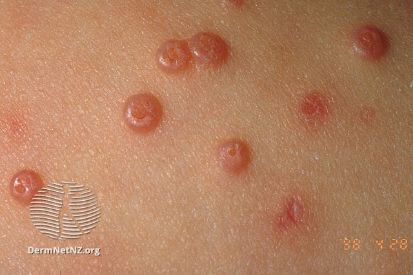
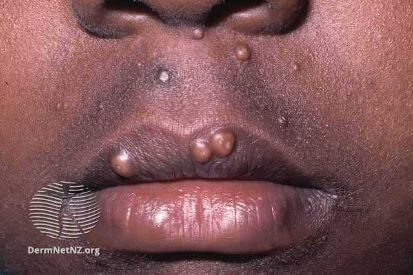
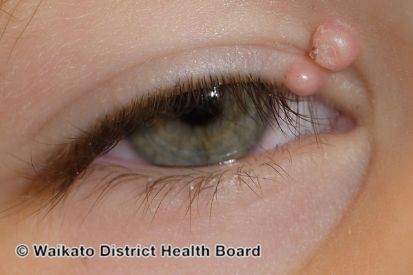
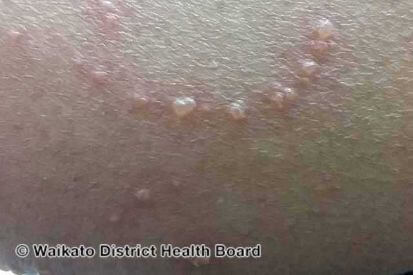
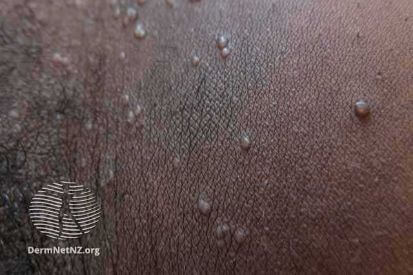
Treatment for Molluscum Contagiosum
In many cases, there is no need to treat molluscum contagiosum. The virus and the bumps will heal on their own over time. At 12 months, about half of cases will clear with or without treatment; at 18 months, about two-thirds will have cleared. When lesions are extensive, symptomatic, or disfiguring, various treatments may be considered.
Treatments are usually either physical destruction or topical therapies. While physical treatments—like cryotherapy, laser ablation, or curettage—can provide rapid treatment, these treatments also risk leaving scars. Topical treatments may include: cantharidin (blister beetle juice), salicylic acid, tretinoin, and hydrogen peroxide cream.
From Our QualDerm Family of Brands: Learn About Pediatric Dermatology
How A Dermatologist Can Help
Dermatologists can often diagnose molluscum contagiosum based on examination and history alone. A biopsy is rarely necessary. Once the diagnosis is confirmed, your dermatologist can provide reassurance and treatment options if you’re interested in them.
Related Blogs

- Skin Cancer
- General Dermatology
- Sun Safety
Use this blog as a guide to help you choose the most effective sunscreen to protect your skin.
Read More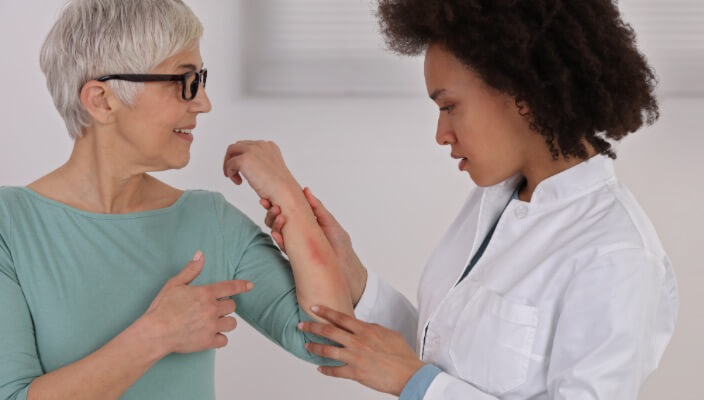
- General Dermatology
Almost everyone experiences itchy skin at some point. Read this blog to learn how a dermatologist can help.
Read More
- Skin Cancer
- General Dermatology
- Skin Exams
Navigating the landscape of Total Body Skin Exams: Uncover the comprehensive process, understand why it matters for skin health, and gain insights into what to expect during these essential dermatological examinations.
Read More
